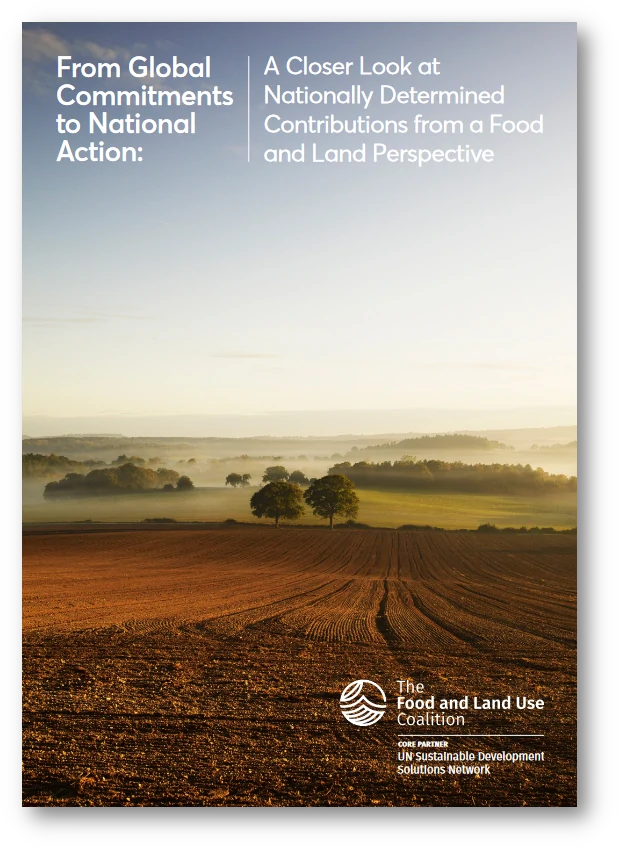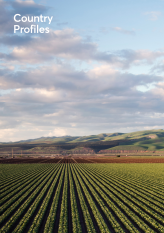From Global Commitments
to National Action:
A Closer Look at Nationally Determined Contributions from a Food and Land Perspective
Analysis by the FELD Action Tracker undertaken in the context of the Food and Land Use Coalition.
A first FOLU brief summarising the preliminary assessment of NDCs was launched at COP26, covering a total of 15 newly updated and enhanced NDCs. This work was supported by funding from the UK and Norway governments, as well as the Ford Foundation on behalf of the Climate and Land Use Alliance.
About this work
The FELD Action Tracker, in collaboration with the Food and Land Use Coalition, undertook a systematic analysis of Nationally Determined Contributions (NDCs) submitted by countries for COP26 – the 26th Conference of Parties under the United Nations Framework Convention on Climate Change (UNFCCC). The purpose of this analysis is to provide answers to the following questions:- How action-oriented are the NDCs with regard to transforming the food and land sector?
- What specific policy measures do they propose, and which institutional mechanisms have been put in place to coordinate implementation?
- What are the main policy gaps and opportunities for countries to prioritise now, globally and at home?
This first analysis focuses on NDCs submitted before October 2021 by G20 members and key forested countries from the Food and Land Use coalition (FOLU), together representing over 60% of global greenhouse gas emissions.
Why a dedicated closer look at the NDCs from a food and land perspective, and why now?
There is growing acceptance that the transition to a low carbon future must happen in the next decade to meet the long-term goal of the Paris Agreement. National commitments towards this are gaining momentum and ambition. However, the rapid decarbonisation of food and land use systems, responsible for roughly a third of global net greenhouse gas emissions, has not received enough attention from national policymakers. NDCs are an important mechanism to set national targets, outline the actions needed in-country, and guide progress in this sector.
Six years on from the Paris Agreement, the world’s largest emitters are still showing weak commitments and insufficient actions to reducing emissions and increasing carbon sinks in the food and land sector.- Some NDCs mention goals and encouraging commitments to action associated with the transformation of food and land use systems but the depth of coverage varies greatly.
- Few NDCs go beyond target-setting, in terms of providing action-oriented detail around how such targets will become operationalised through policy design and implementation planning.
Policy makers have an opportunity to ratchet up their NDCs after COP26 and ahead of the first Global Stocktake in 2023, making them more inclusive of food and land use systems. They must urgently set ambitious, detailed and actionable policies to transform food and land use systems in order to reach net zero emissions by mid-century. Unless the sustainability of food and land use systems is drastically improved in the next ten years, both the goals of the Paris Agreement and the SDGs will be out of reach. There is no time to lose.
This analysis was conducted as part of FELD’s contribution to the Food and Land Use Coalition. FOLU’s broader work and related information can be accessed on the FOLU website.
Country-specific NDC Profiles
Detailed profiles for each of the analysed NDCs are available just below.
All official NDC documents can be accessed in their full version on the UNFCCC NDC Registry







